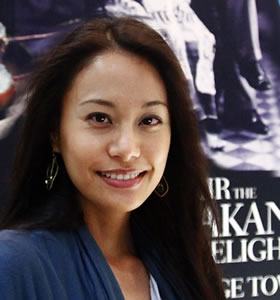联系我们
邮箱:shanghai.cga@nyu.edu
电话:+86 (21) 20595043
微信公众号:NYUShanghaiCGA
地址:
上海市浦东新区杨思西路567号
W822室

© 2024 All Rights Reserved

Tzu-hui Celina Hung
Assistant Professor of Literature NYU Shanghai
As a scholar trained in comparative literary and cultural studies with a focus on the 20th and 21st centuries Chinese and Sinophone worlds, Celina has always attached great importance to what Benedict Anderson describes as the “specter of comparisons” and what Édouard Glissant calls the “poetics of relation” when exploring the question of Chineseness. Her broader research interests lie at the intersection of global migration history, colonial and settler colonial encounters, and interethnic imaginations. In the specific context of transpacific Chinese migration in modern times, her work has been dedicated to exploring how categories like the Chinese hanren (漢人) and huaren (華人), along with their variegated associations, find local articulations and develop epistemologically charged meanings at sites where these identity markers often prove unstable and necessitate reframing.
Book Project 1. Creolizing the Sinophone Pacific
Celina’s first book-in-progress, Creolizing the Sinophone Pacific, is driven by the above concern and is greatly informed by historical scholarship. It offers a simple argument: although creolization is most frequently associated with the colonial subjects of European and African descents in the Indian Ocean and the Americas, and although existing scholarship on this often dismisses the role of the Chinese figure, creolization in fact has long formed an integral part of the culture-making process for sojourners and settlers from China. Particularly in maritime Southeast Asia, localized Chinese communities like the Chinese Peranakans in Dutch Java, Chinese Mestizos in Spanish Manila, and Baba Chinese in the British Straits Settlements emerged from the tension- filled long-term encounters between Chinese merchant settlers, indigenous and migrant laborers, and European colonizers. These local communities played highly versatile and powerful—although also often contradictory—roles in the colonial societies between the mid-18th and mid-20th centuries. Over the years, through support from both the Chiang Ching-kuo Foundation and the Mellon Postdoctoral Fellowships Program at UCLA, Celina has gathered material from a multilingual body of essays, stories, newspaper articles, and films produced locally, both at the turn of the 20th century and in the postcolonial contemporary days. These sources provide invaluable insights into how notable figures from these simultaneously westernized and indigenized communities exercise flexible cultural affinities and talk about their changing identities. Upon publication, hopefully within the next two years, the book aims to prompt sinologists from various humanistic disciplines who take an interest in the migration of people and their cultural forms to think about the ways colonial racial thinking in Southeast Asia has not only contributed to the 20th century notions of Chineseness across the Pacific, but in the postcolonial era, also laid the foundation for the region’s multiracial governance, with lasting impact on the Chinese-descended locals.
Book Project 2. Staging Original and New Residents: Settler Colonial Imagination in Multicultural Taiwan
邮箱:shanghai.cga@nyu.edu
电话:+86 (21) 20595043
微信公众号:NYUShanghaiCGA
地址:
上海市浦东新区杨思西路567号
W822室

© 2024 All Rights Reserved